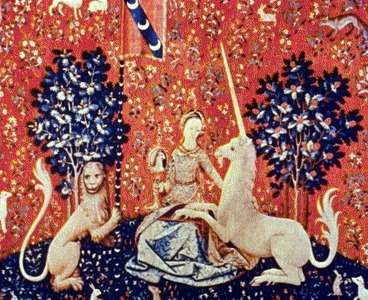

|
| |||||||||||||||||||||||||||||||||||||||||||||||||||||||||||||
|
|||||||||||||||||||||||||||||||||||||||||||||||||||||||||||||
|
| |||||||||||||||||||||||||||||||||||||||||||||||||||||||||||||

welcome to understanding myth & mythologyIn these pages, The Muse Of Mythology explores the nature of myth and mythology.
about understanding myth and mythology
The true significance of myth and mythology is commonly overlooked. Many people see myths as little more than childhood amusements not worthy of serious study, like a fairy tale or a nursery rhyme; they see mythology—the study and science of myth—as an obvious and simplistic undertaking. This way of looking at myths and mythology has unfortunate consequences. It relegates to society's backdoor midden artistic treasures of immeasurable value as well as irreplaceable sources of ancient wisdom. More than a casual glance, however, reveals that myth and mythology are proper subjects for study with great scientific and practical value. Fortunately, in the late Nineteenth and early Twentieth Centuries, certain anthropologists, psychologists, and others woke up to this fact and gave myth the attention it deserves.
getting started—the key that unlocks the doorIn these pages, The Muse of Mythology takes you on an exploration of myth and mythology that demands little more or less of you than what the great mythologists of the Nineteenth and Twentieth Centuries were willing to accept—a predisposition to treat the implausible seriously. Gradually these students of myth came to realize that a key to unlocking the secret lessons myths had to teach was to adopt a certain point of view, a precondition that is not hard to meet. It demands only two easy fundamental shifts in attitude:
Are you willing to embark on this adventure? Are you willing to clear your mind of prejudice and superstition—even while you explore the superstitions of others? If so, The Muse invites you to take this fascinating journey into past and present myth. Life may never seem quite the same afterward. the role of truth in myth—shedding misconceptions
A particular fairy tale, legend, or fable may or may not tell an underlying story. Some are meant to be taken at face value while others, like myths, are meant to suggest much more than meets the eye. Understanding the role of truth in myth is crucial. Where myth is concerned, what is truth? when is a myth not a myth?—Does genre really matter?When is a myth not a myth? the answer: When it's a fairy tale, folk tale, fable, fantasy, fiction, legend, urban legend, or nursery rhyme. These genres are kinds of stories in their own right, but they are not mythical stories; they're different kinds of critters. They're all related but each is unique. These other genres are myth's cousins. As cousins, all have a part to play in the exploration of myth; but they are not themselves myth.
In The Wizard of Oz, after they realized that dangerous animals might be stalking them, Dorothy and Scarecrow and Tin Man and Cowardly Lion skipped down the Yellow Brick Road in a panic singing about the dangerous, stalking denizens of the wood:
...Remember? Is this story a myth, fairy tale, legend, or fable? In a way, it doesn't matter. All these genres, whether humorous or dramatic, whether written as sheer entertainment or for edification, can be appreciated on different levels. They all can be enjoyed as stories; they all merit consideration. the essential nature of mythWhat makes a myth a myth? All myths display a set of essential, defining characteristics that they hold in common with other myths. A myth must exhibit these defining characteristics in order to earn the right to be called by that name. The Muse Of Mythology explores these defining characteristics at the feature called The Nature Of Myth. There The Muse explains how to recognize a myth when you see one and shows how the enjoyment and benefit that comes from reading any myth multiplies many-fold if you understand the essential nature of all myths.
ETAF recommends...Coming.
Search this web site with Electricka's Search Tool:
tap or click here
Electricka's Theme Products
Shop At Cafe Press
This web site and
its contents are copyrighted by
Decision Consulting Incorporated (DCI).
All rights reserved. |
| ||||||||||||||||||||||||||||||||||||||||||||||||||||||||||||